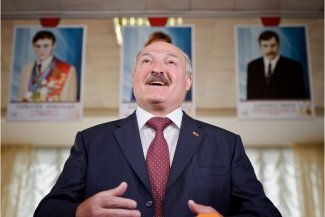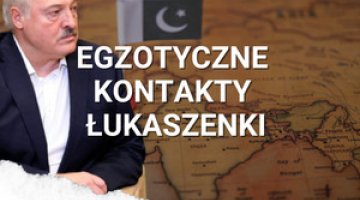Parliamentary elections in Belarus: a step backwards

On 17 November 2019, Belarus held parliamentary elections in which all 110 seats were won by pro-government candidates. According to both independent Belarusian and foreign (mainly from the OSCE) observers, the course of the electoral campaign and the voting itself were inconsistent with generally accepted democratic standards. As with all elections held in Belarus over the last ten to twenty years, a number of manipulations on the part of the authorities have been recorded. However, unlike in the previous elections held in September 2016, no seat was won by an independent candidate, which should be viewed as a symbolic step backwards in the policy of feigned liberalisation currently being pursued by the Belarusian leadership. This policy is connected with the dialogue with the West which resumed in 2016. President Alyaksandr Lukashenka’s decision to regain full control of the parliament is motivated by the international context of these elections, including the mounting pressure from Moscow which is striving to considerably tighten its grip on Belarus. In addition, one more reason for the regime to toughen its domestic policy is the presidential election planned for next year and expected to result in re-election for Alyaksandr Lukashenka.
An empty electoral ritual
President Lukashenka brought the date of this year’s parliamentary elections forward by ten months because otherwise they would have coincided with next year’s presidential election. Both elections have to be held by the end of August / beginning of September 2020 at the latest. Just as over the last ten to twenty years, the recent elections were an empty ritual, which on the one hand results from the parliament’s marginal significance in the Belarusian political system (the president and his immediate power base are the main centre of power), and on the other due to the long-term political apathy of a major portion of society. The citizens’ lack of interest in politics is convenient for the authorities because it guarantees social peace, especially in the context of a gradual decline in Belarusian society’s living standards recorded in recent years.
The electoral campaign was controlled by the authorities and was mainly formal. The candidates’ campaign materials (including their TV appearances) were not much publicised in the state-controlled media and in public places, and whenever they contained an excessively harsh criticism of the authorities, their presentation was blocked. Most meetings with voters organised by specific contenders (both pro-government and opposition candidates) did not evoke much interest, there were situations when the candidate was the only person present. Similarly, street rallies organised by the opposition towards the end of the campaign (for example those advertised as “meetings of free people”) in Minsk gathered no more than 200 attendees, which is proof not only of Belarusian society’s insignificant interest in politics but also of its minor readiness to publicly manifest its views. At the same time, the authorities chose to use a wide array of electoral manipulation tools which they had repeatedly used before. The Central Election Commission of Belarus reported turnout to be 77% (in early voting it was around 35%). According to independent observers, this was considerably overstated by specific electoral committees (by around 20–30 percentage points) and in a portion of constituencies it failed to cross the required 50% threshold, which de iure is tantamount to invalidating the election results in these constituencies.
The authorities refused to register a portion of opposition candidates and during the electoral campaign the most outspoken critics of the government were prevented from continuing their participation in the electoral race. Instances of intimidating independent observers have been reported and there were problems with allowing the observers to witness the vote counting process in most polling stations. Frequently, voters were forced to take part in early voting (this is the stage in which most electoral manipulations happen). This involved groups prone to pressure, for example students who, if they refused, were threatened that they would be, for example, deprived of their student accommodation. Foreign observers representing the Council of Europe and the OSCE pointed to the absence of sufficiently safe seals on ballot boxes, the undisclosed status of electoral rolls and the fact that the electoral committees were dominated by state officials. Due to the above-mentioned numerous and system-wide violations of the principles of democratic voting and the absence of independent sociological research, it is difficult to assess the genuine political preferences of Belarusian society and the election result should be viewed as an administrative decision by the authorities.
The loyal parliament
The House of Representatives of the seventh term elected in the recent elections is solely composed of individuals loyal to the president. However, the upper chamber, the Council of the Republic, is composed of 64 deputies elected by the councils of individual voblasts and the capital city; the president also directly nominates his representatives as well. These mainly include: mid- and top-level officials; activists representing pro-government organisations; representatives of the science, healthcare and education sectors; the state-controlled media; and all other structures that are fully dependent on the authorities. The youngest MP is the 22-year-old Miss Belarus Maria Vasilevich, formerly a member of the president’s diplomatic protocol team. As early as during the registration of candidates and subsequently during the elections, the Belarusian authorities were at pains not only to prevent the following from winning a seat: opposition representatives; members of independent grassroots movements; and two independent MPs of the sixth term – Alena Anisim and Anna Kanapatskaya. Both MPs were very dynamic and inquisitive in their activities. These went beyond the standards of Belarusian parliamentarism to date, and caused a nuisance to the authorities. It is also worth noting that individuals openly displaying pro-Russian views also failed to win a seat. They include the leader of the Belarusian Cossack movement Uladzimir Ulakhovich, who was an MP in the previous parliamentary term, as well as Elvira Mirsalimova and Artem Agafonov, representatives of the Civil Concord grassroots movement subscribing to the “Russkiy mir” ideology.
The international context and domestic factors
Although parliament plays a marginal role in the Belarusian political system and very rarely submits legislative proposals (in the last term MPs submitted a mere four bills), Lukashenka decided not to continue the policy of feigned parliamentary pluralism launched back in 2016. On the one hand, restoration of a fully loyal line-up at the House of Representatives results from the conviction that the West is not making continued dialogue strictly dependent on several parliamentary seats being allocated to representatives of the opposition. This view was likely solidified following Lukashenka’s official visit to Austria on 11–12 November (his first visit to the EU in three years) which was strongly dominated by economic issues. On the other hand, another reason behind the president’s decision to step up control of the legislative body has been the mounting tension in Belarus’s relations with Moscow, which is striving to impose genuine integration in the framework of the Union State. At present, tension is rising over the agreement on deepened integration (this is being devised by both sides) and over the so-called road maps regulating specific fields of cooperation., The latter are to be approved by the presidents of Belarus and Russia on 8 December 2019 which is the 20th anniversary of the Union State’s establishment. In addition, the relations between the two states are being complicated by the fact that the Russian side is making the scope of the subsidies it offers to Belarus directly dependent on Minsk’s concessions. This also includes the price of fuels which are of key importance for the Belarusian economy.
President Lukashenka is aware that the upcoming months may bring a major deterioration in Russian-Belarusian relations, which is why he intends to avoid the risk of the Kremlin impacting on the work of parliament. In an extreme scenario, this could result in the emergence of a pro-Russian parliamentary group. The present ‘sterility’ of the parliament also results from the fact that independent MPs are afraid to present the genuine mood of a major portion of society which is dissatisfied with the government’s economic policy. As a consequence, it should be expected that the authoritarian model of governance will solidify in the upcoming months. This will also be significant for next year’s presidential election. In Belarus this is the main test of the regime’s efficiency, mainly in the context of Lukashenka’s planned re-election.





